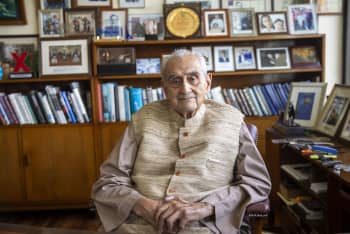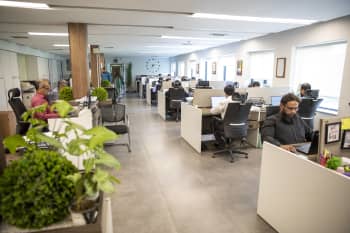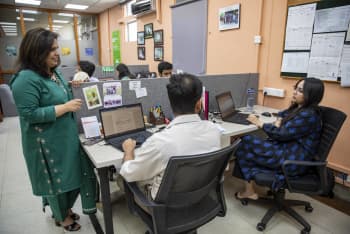Thinking Out of the Box
Six Decades of Innovation, Jobs, and Growth in Pakistan
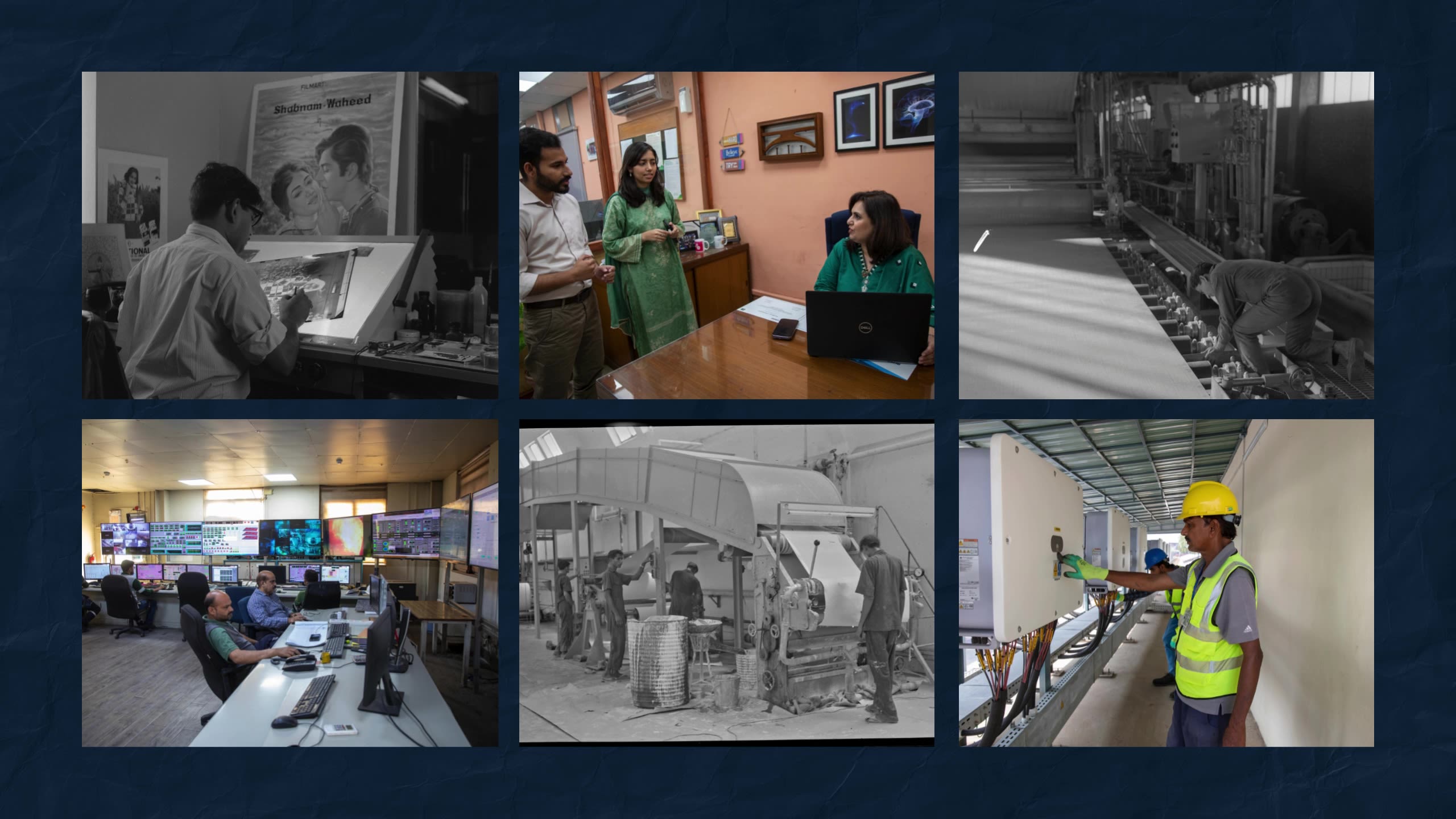
If the people in Syed Babar Ali’s grainy, black-and-white photos could have glimpsed their future, they would have hardly believed what awaited them.
Those snapshots of Mr. Ali’s earliest days in business capture the founding of Packages Limited, the packaging manufacturing company he launched in Pakistan six decades ago. He was inspired, he remembers, by the commitment of others in Pakistan to build a nation following the country’s independence in 1947.
At that time, Pakistan’s economy was in its infancy and industries were still finding their footing. As new companies began setting up operations, Mr. Ali noticed that many continued to rely on imported packaging materials for their products. Once he identified this market gap, he seized the opportunity, establishing Packages Limited in 1956. It has developed and grown alongside Pakistan, a fact Mr. Ali still relays with enthusiasm and pride.
Printing solid board at Packages Ltd, Lahore, Pakistan in 1967. Photo by Mary M. Hill/World Bank Group.
Printing solid board at Packages Ltd, Lahore, Pakistan in 1967. Photo by Mary M. Hill/World Bank Group.
IFC and Packages Ltd signing in 1994 with Syed Hyder Ali, CEO and Managing Director. Photo by Michele Iannacci/World Bank Group.
IFC and Packages Ltd signing in 1994 with Syed Hyder Ali, CEO and Managing Director. Photo by Michele Iannacci/World Bank Group.
Mr. Ali is now 99 years old, but memories of that time remain vivid. As Packages Limited matured alongside Pakistan, the company leaders set progressively more ambitious targets to help serve the country’s manufacturing needs. Those efforts yielded success beyond what he could have imagined.
Today, Packages Group is one of Pakistan’s most established conglomerates, comprising a diversified group of 15 companies offering paper production, printing solutions, consumer products, pharmaceuticals, real estate, and insurance services. It employs over 9000 people in Pakistan, provides jobs for over 30,000 people across its supply chain, and contributes to thousands of indirect employment opportunities in in the region.
Mr. Ali is quick to credit the employees of Packages Group for much of its growth. “For any venture to succeed in the long term, it must ensure that those who contribute to its success also share in its rewards. That means offering competitive wages, supporting quality of life, investing in professional growth, and enabling retirement with dignity,” he says. This people-first ethos continues to drive Packages Group forward.
IFC’s 60-year partnership with Packages, which Mr. Ali calls “a very happy journey,” also played an instrumental role in achieving key milestones that supported its evolution, he believes.
Although the contours of the partnership have changed over time, IFC and Packages Group have always focused on the company’s long-term growth, notes Zeeshan Sheikh, IFC’s Country Manager for Pakistan & Afghanistan. The first several decades were devoted to the company’s expansion, but more recently, IFC and Packages Group have collaborated to steer the company through rapidly changing market dynamics as well as domestic and global economic volatility.
The length and breadth of IFC’s support has supported every stage of Packages Group’s progress, which has helped create and sustain jobs, boost productivity, and contribute to private sector-led growth in Pakistan, says Sheikh.
Most recently, IFC’s support helped Packages Group build a new factory and biomass plant that created nearly 30,000 jobs. Such opportunities provide a critical lifeline in a country where the rate of unemployment stands at 10.3 percent, according to the World Bank, and an estimated 3 million young people are expected to enter the workforce annually over the next decade without a clear career path to work.
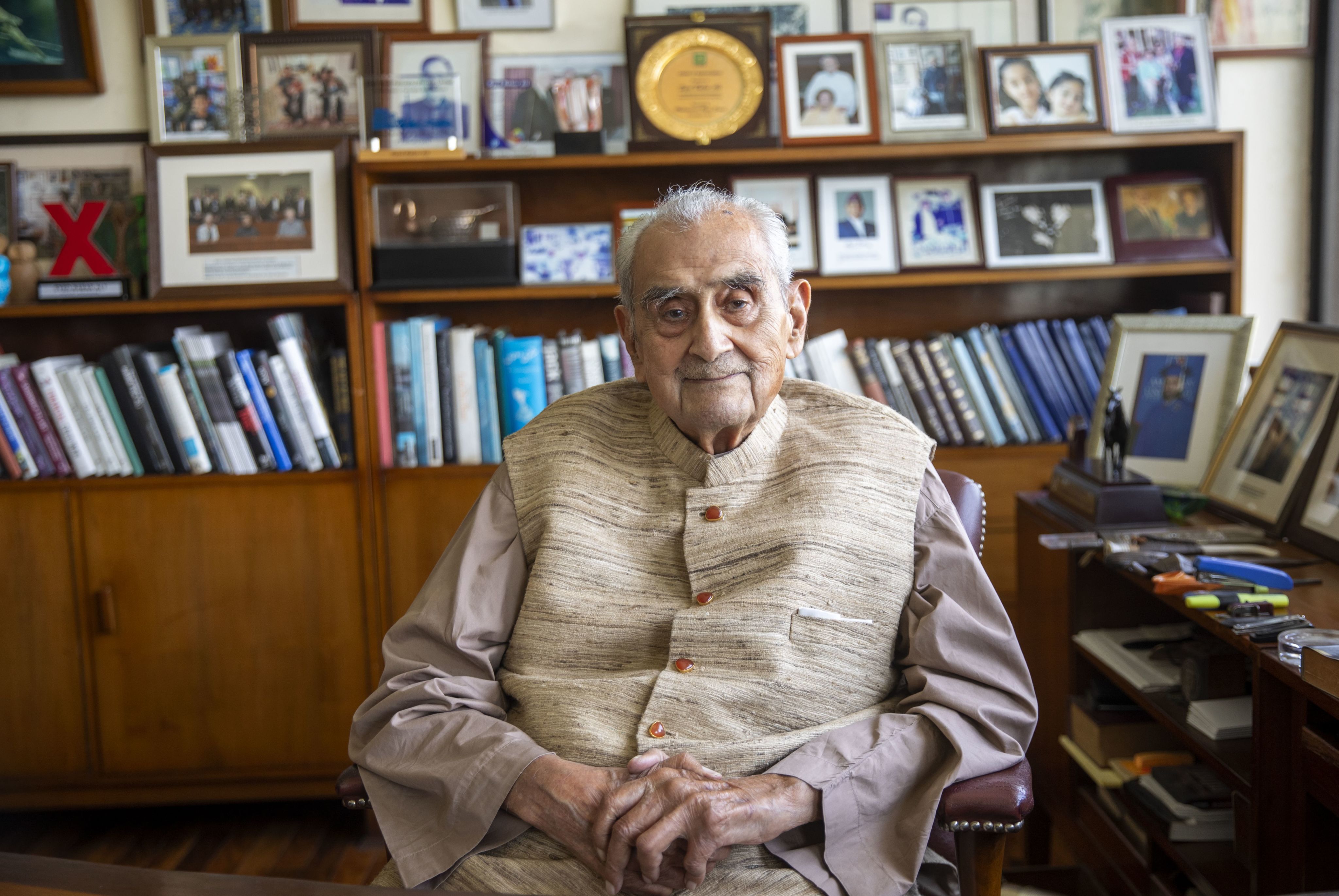
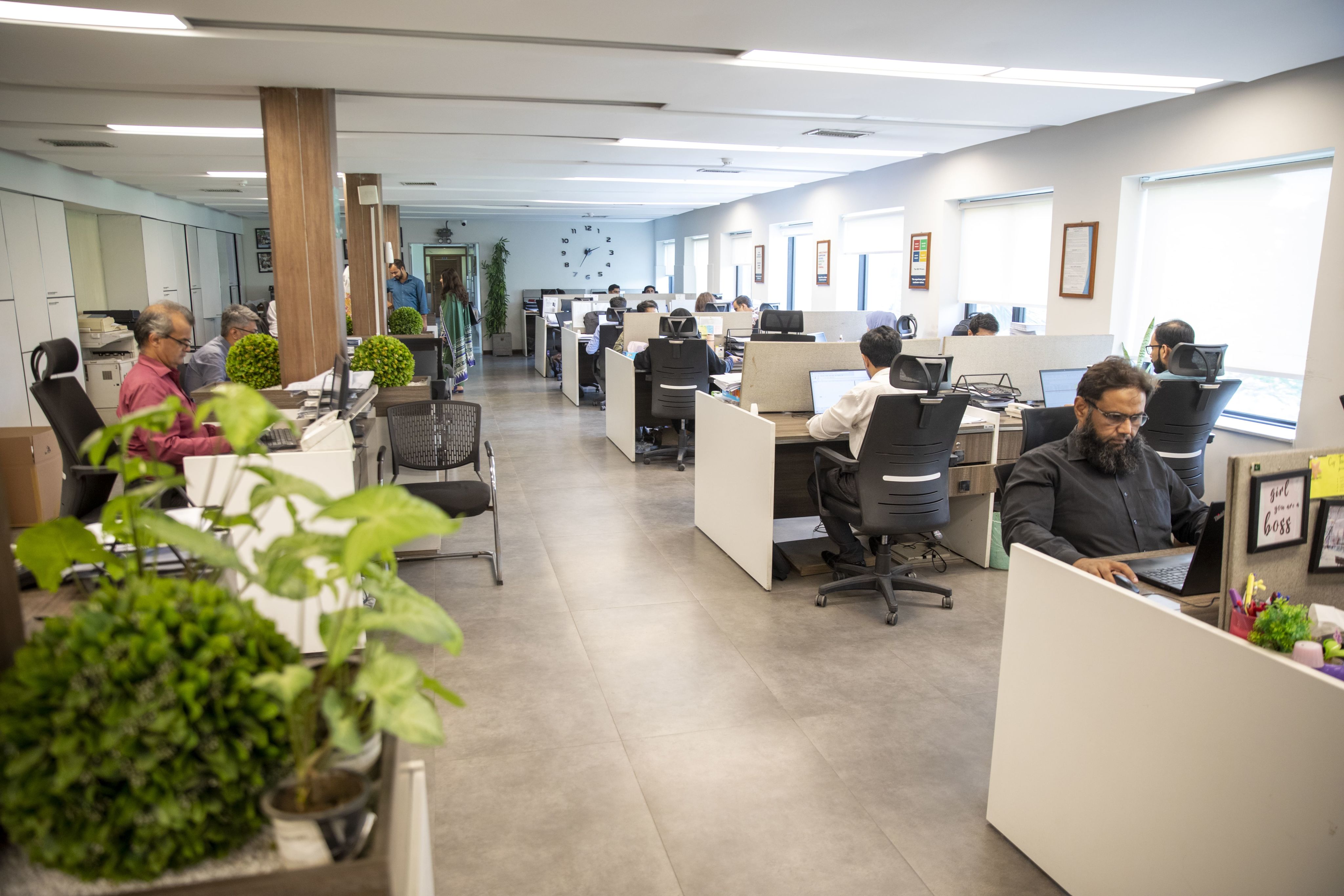
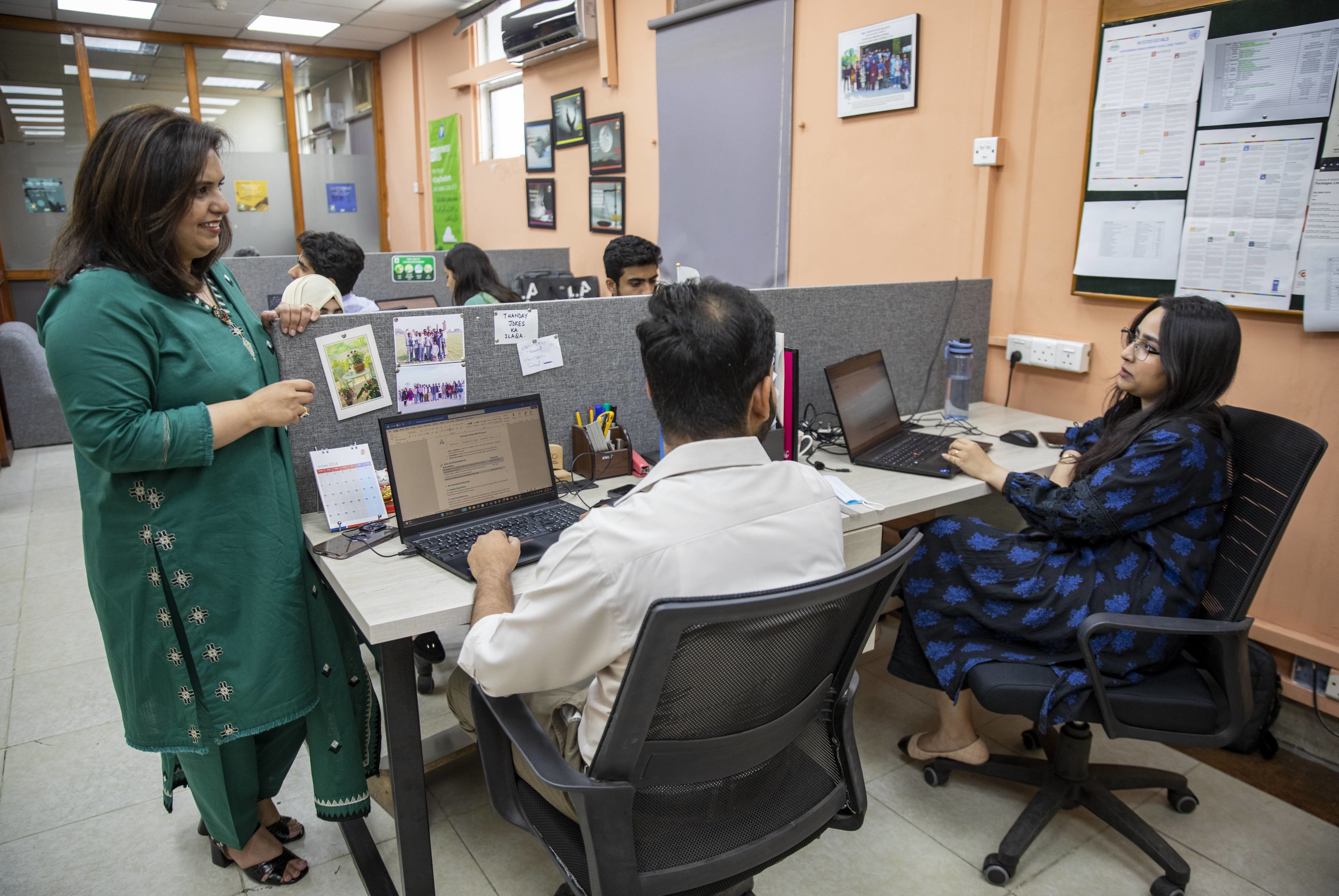
A foundation for growth
Early on, Packages Limited manufactured boxes, packing paper, and other packaging materials with paper it purchased in bulk from another company. After its first decade in business, however, Mr. Ali realized that building a company-owned paper mill was the best way to meet ever-increasing consumer demand. But he wasn’t sure how to finance it.
In the art room at the Packages Ltd. plant in Lahore, Pakistan in 1967. Photo by Mary M. Hill/World Bank Group.
In the art room at the Packages Ltd. plant in Lahore, Pakistan in 1967. Photo by Mary M. Hill/World Bank Group.
“That’s what really led me to IFC in the first place,” he remembers. “In 1964, I went to Washington D.C., back when IFC was relatively new itself, just a few rooms at the World Bank headquarters.” (IFC, like Packages Limited, was created in 1956.) “I proposed this project to them. That’s where our collaboration began, and honestly, neither of us have looked back since.”
Packages Limited was IFC’s first client in Pakistan, and Mr. Ali credits the partnership for laying the foundation that supported Packages Limited’s early success. “[IFC was] the first to encourage us to become a publicly listed company, which opened us up to new investors and opportunities. From there, they introduced us to global industry standards, techniques, and innovations that kept us productive and competitive as we navigated this new experience together,” Mr. Ali says.
He remembers at least 10 different projects Packages Limited launched with IFC’s help in the early years, including the founding of Milkpak in 1979. Milkpak (now Nestlé Pakistan Limited), one of Pakistan’s first packaged milk brands, helped establish a new formal dairy industry and a source of income for livestock farmers across the country.
Inside Package Ltd.'s factory in 1964. Photo by Mary M. Hill/World Bank Group.
Inside Package Ltd.'s factory in 1964. Photo by Mary M. Hill/World Bank Group.
Since IFC’s first investment in Packages Limited and in Pakistan, IFC has invested approximately $13 billion to support Pakistan’s private sector growth. This includes high-impact investments and advisory solutions in manufacturing, renewable energy, financial inclusion, infrastructure development, agribusiness, housing, healthcare, and trade.

Strategies for changing times
Over the decades, Packages Group's business strategy evolved in response to world events. In 2008, for example, Pakistan’s economy was hit hard by the global financial crisis, domestic political turmoil, and an energy crisis, which led to a sharp decline in consumer demand and exports. Packages Group, like many other companies in Pakistan, faced significant obstacles in accessing capital markets and had to strengthen its balance sheets to weather the downturn.
This was one of the largest relocation and investment projects in the company’s history—and IFC was ready with support, just as it always had been, says Mr. Syed Hyder Ali, CEO and Managing Director of Packages Group, and the son of the founder. IFC’s $50 million equity investment played a critical role in preventing the company from scaling down its operations, he notes.
"IFC stepped in at the right time, especially when funding was scarce, and through this support we were able to set up a biomass plant in Kasur that helped make us independent of the grid," he says.
"IFC stepped in at the right time."
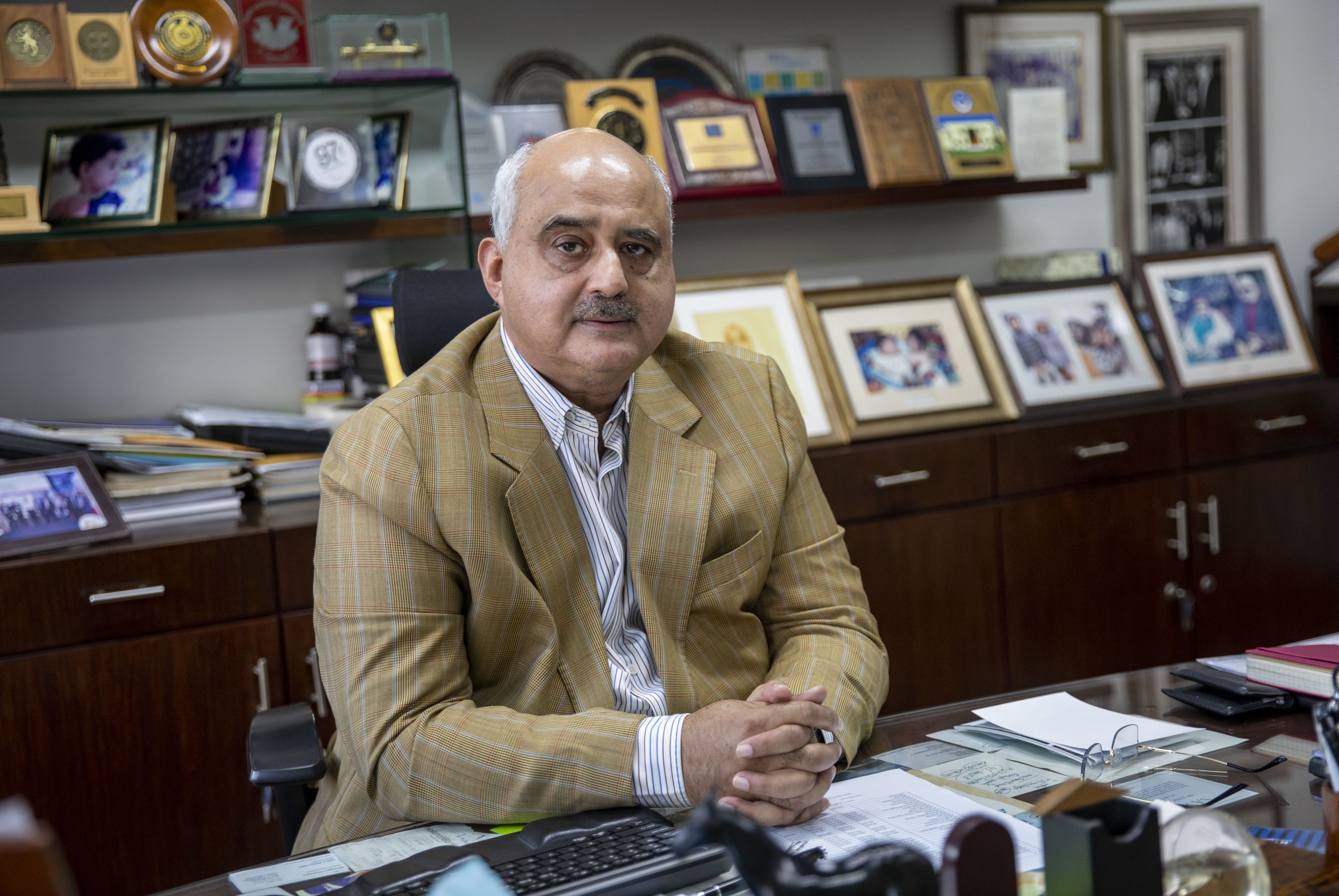
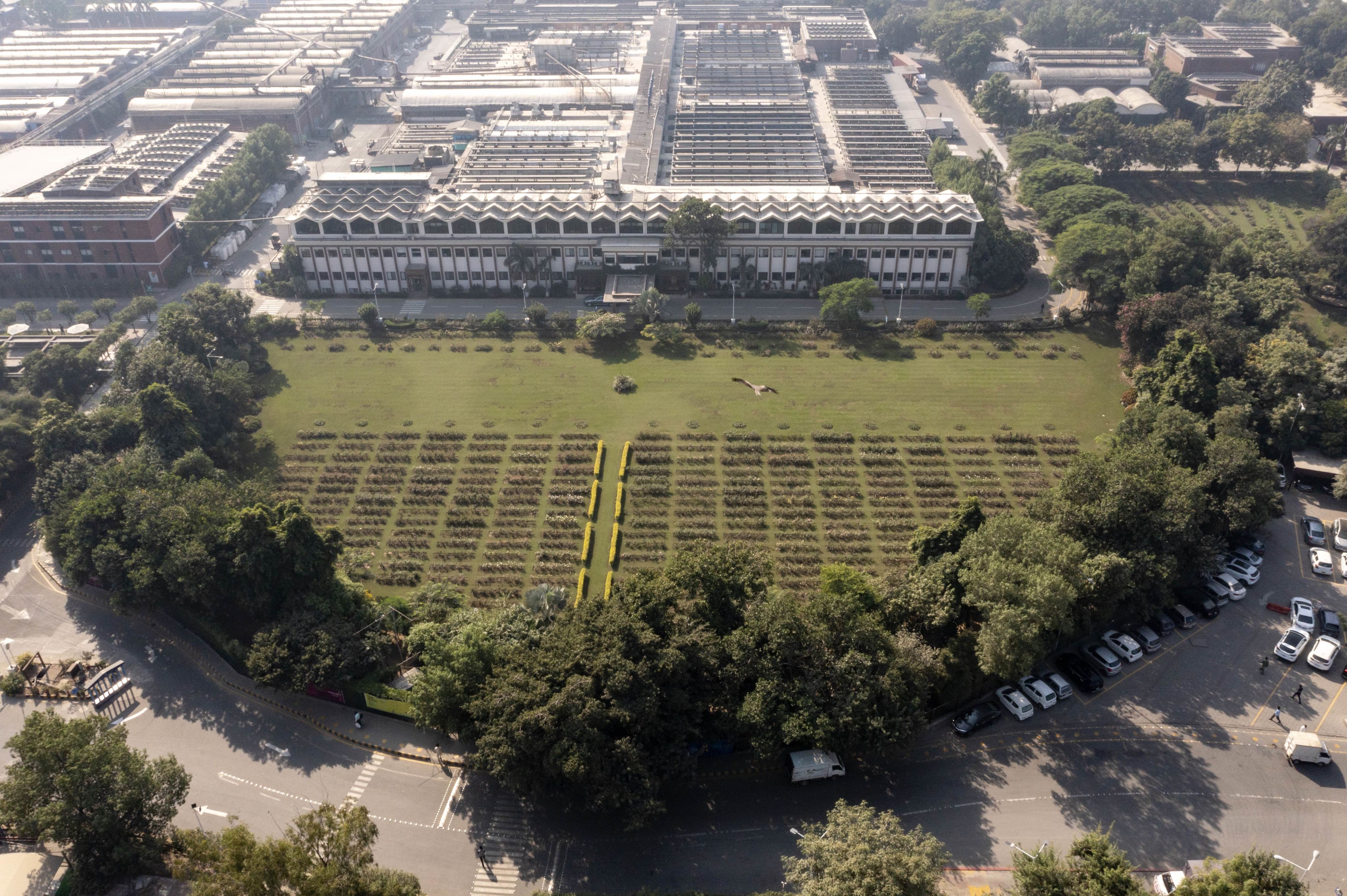
Driving sustainable practices
Packages Group has always prioritized sustainability—an urgent concern in Pakistan, one of the most climate-vulnerable countries in the world. Over the past 25 years, Pakistan has experienced more than 150 extreme weather events and man-made disasters.
These events have taken a significant toll on businesses and the broader economy: climate-related impacts caused estimated annual economic losses of $3.8 billion over the past two decades. Looking forward, the combined risk of climate-related events, environmental degradation, and air pollution are projected to reduce Pakistan’s GDP by at least 18 to 20 percent by 2050, according to the World Bank Group’s Climate Country Development Report 2022 for Pakistan.
IFC’s guidance on sustainability has been an integral part of both the equity and debt support provided by IFC over the years, according to Mr. Khurram Raza, Chief Financial Officer at Packages Group. This is why the relationship with IFC has “never been a purely transactional banking relationship for us,” he says. “We value this partnership because IFC is our first sounding board to assess the full impact of our work on people, communities, and the environment whenever we plan to undertake a strategic capital investment.”
Packages Group’s’ attention to its long-term impact on the climate is especially clear in the Solvent Recovery Unit, a tall metallic tangle of steel columns, cylindrical tanks, and thick piping on the company’s Lahore campus. The Solvent Recovery Unit plays a crucial role in capturing, purifying, and recycling up to 300 kg of solvent vapors per hour for reuse in production. It is also part of a broader suite of decarbonization initiatives that Packages Group has implemented to reduce waste and conserve resources.
Here, too, IFC, in partnership with the Government of Australia and the UK Government, supported Packages Group through a series of advisory projects over the years to help the company develop these initiatives.
"IFC was very helpful in setting parameters for us in terms of our sustainability objectives," says Mr. Syed Hyder Ali. "This really helped us see how energy-efficient and cost-competitive we would become in the long-run and how we could better meet the demands of a rapidly growing environmentally conscious and socially responsible consumer base."
In 2024, IFC engaged with Packages Group on developing a decarbonization roadmap for their manufacturing and real estate operations. This project is geared towards helping them identify climate-related risks and opportunities through innovative technologies and detailed impact assessments aligned with international standards and best practices.
““Packages has always been a pioneer, consistently ahead of the curve in its drive to do good, grow, and innovate,” says Ashruf Megahed, IFC’s Regional Industry Head for Manufacturing, Agribusiness & Services. “That commitment has aligned well with IFC’s mission, and over the years, we’ve built a strong partnership grounded in shared values. This collaboration has also paved the way for innovative synergies that draw on IFC’s investment and advisory support to deliver meaningful impact, including in their efforts to decarbonize.”
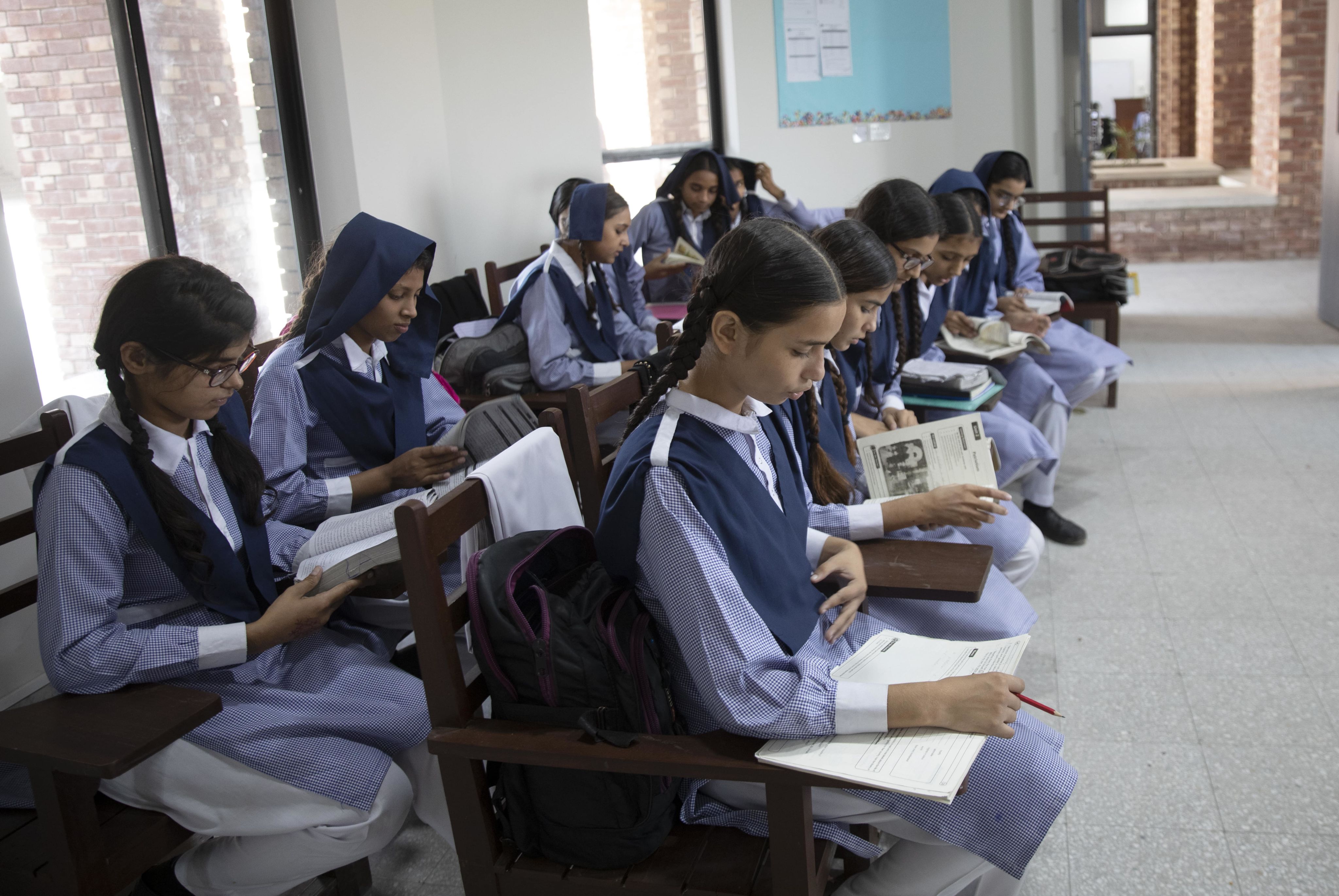
Empowering communities
Packages Group’s impact reverberates beyond its office complex in Lahore. A little over an hour away, in the city of Kasur, the red-brick campus of a secondary school for girls is bustling with activity. Inside sunlit classrooms, students in crisp blue and white uniforms sit upright at their desks, eyes fixed on their teacher as she guides them through the day’s history lesson.
The school, part of a broader network run by the Packages Foundation, offers free high-quality education to over 940 students. Established in 2015, the Foundation allocates 2 percent of annual profits from companies within the Packages Group to provide education and healthcare services for underserved rural communities across Pakistan. This also includes the Sehat Mobile Project, a mobile health clinic launched in 2018, which has provided general health screenings to over 30,000 people across Lahore and Kasur, along with a primary healthcare clinic in Kasur that offers free check-ups, referrals, and medicines to more than 150 patients each day.
Ms. Farhana Tabassum, Principal of the school, has been employed by the Packages-led school system since 2016. She describes the system as deeply hands-on, guiding students not only through their primary and secondary education but also supporting them in accessing higher education and meaningful employment.
She recalls how several students who aspired to become teachers were trained through the system and placed in nearby government schools, with payroll support that the Packages Foundation provided to ease their transition. Many others, facing financial pressure to support their families, received vocational training in mechanical and electrical work, tailoring, stitching, or the culinary arts.
"I love that we play such an important mentorship role in these students’ lives," Ms. Tabassum says. "I’ve seen so many of them go on to pursue master’s degrees, become nurses and teachers, and join the police force or civil service. It’s a really proud moment for all of us."
"I love that we play such an important mentorship role in these students’ lives."
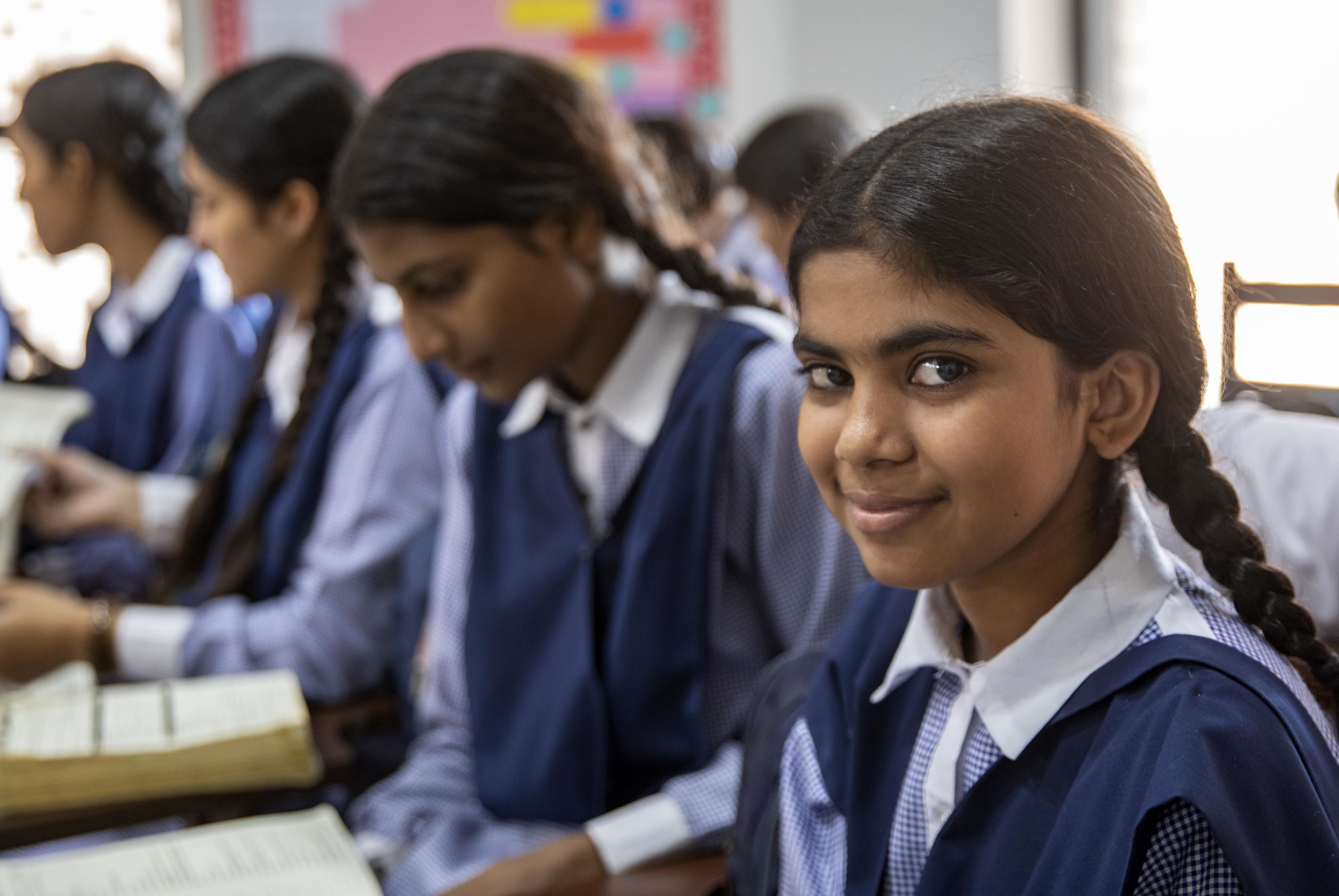

For founder Syed Babar Ali, reflecting on Packages Group’s impact on Pakistan is one of the most rewarding aspects of a long life. He is especially proud of the way his company has trained local business leaders and launched their careers—even when they become commercial rivals. In several cases, former Packages Group employees have gone on to start their own competing packaging businesses, drawing on the skills and leadership opportunities gained during their time at the Group. Mr. Ali sees this as a “win-win,” as it reflects that Packages Group has built a business strong enough to inspire replication.
“The market is large enough” to accommodate good ideas and products, he says, noting that that there are now over 100 packaging companies in Pakistan today.
This expansive view of shared success, paired with Mr. Ali’s unflagging drive to help Pakistan prosper, is characteristic of his worldview. No person or company “can be the sole winner,” he says. “There’s enough for everybody.”

Designed by Angela Njeri Mureithi
Published June 2025



